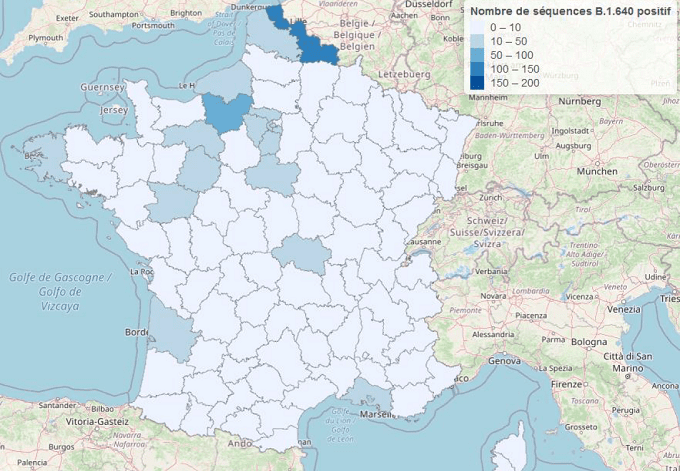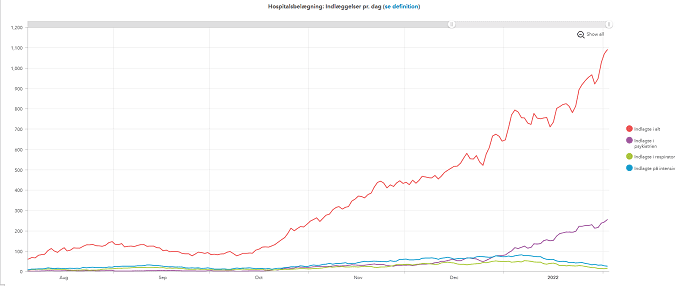
France: B.1.640 declared a VOI after more than 500 cases found
Sars-CoV-2 variant B.1.640 has been reclassified as a Variant of Interest in France after a new risk assessment showed there have been more than 500 cases on the French mainland, with cases also discovered in the UK and Germany. Other countries in Europe, from Africa, Asia and North America, have also detected this variant, which could suggest an onset of diffusion.
Variant 20A/C – B.1.640 – is classified as a VOI from 05/01/2022, and continues to circulate in Metropolitan France: it represented 0.5% of interpretable sequences for Flash Surveys S48 and 49, and 0.6% for Flash S50.
B.1.640 was detected in 12 of the 13 regions of Metropolitan France since the beginning of October 2021. The regions with the most cases have identified are Hauts-de-France (N=189, in particular the Nord department), Île-de-France (N=185) and Normandy (n=152)
Variant B.1.640 is now classified VOI since the risk analysis of 05/01/2022, on the basis of the continuation of its circulation in France and preliminary in vitro data, indicating a decrease in the effectiveness of neutralization by vaccine or post-infection antibodies, and therefore a possible escape from the immune response. The circulation of B.1.640 continues at low levels in mainland France: 0.1% for the Flash S51 survey and 0.2% for the Flash survey S52.
A total of 437 sequences of VOI B.1.640 have been deposited in the international GISAID database in 05/01/2022, of which 72% come from France (315). The other countries that have identified this virus are the Republic Congo (N=40), United Kingdom (N=21) and Germany (N=19). However, other countries in Europe, from Africa, Asia and North America, some of which have limited sequencing capabilities, have detected this variant, which could suggest an onset of diffusion.
The identified B.1.640 sequences match mostly to the B.1.640.1 sub-lineage. Among these 437 sequences, 21 carry the E484K mutation, characteristic of sub-line B.1.640.2 (i.e. 4.8%, according to GISAID data). If the E484K mutation has an impact on immune response escape, too few cases have currently been detected to draw conclusions about the characteristics of B.1.640.2 compared to B.1.640.1. In this analysis of risk, no distinction will be made between these two sub-lineages.
VOI B.1.640 has also detected in Reunion, with three cases in total, including one case identified as part of the Flash S43 investigation (25-29/10/2021).
The circulation of the 20A/C variant (B.1.640) continues in France, despite the emergence of Omicron. From preliminary in vitro data produced by the National Reference Center for Respiratory Infection Viruses indicate a decrease in the effectiveness of neutralizing antibodies post-infection or post-vaccination, and therefore a possible escape from the immune response. Variant B.1.640 is therefore now classified as a VOI (variant to follow).
The recently discovered sub-lineage B.1.640.2 (aka IHU) now has 21 cases in France.
Information for this report has been combined from Variant Risk Analysis dated 12th November 2021 and Variant Risk Analysis dated 5th January 2022 (they’re both in French)
UPDATE 1 – 17th January 2022
10th March 2021: International Journal of Infectious Diseases – Genomic surveillance of SARS-CoV-2 in the Republic of Congo
France: new coronavirus variant B.1.640 detected in Finistère, Brittany
France: new coronavirus variant B.1.640 detected in Finistère, Brittany






